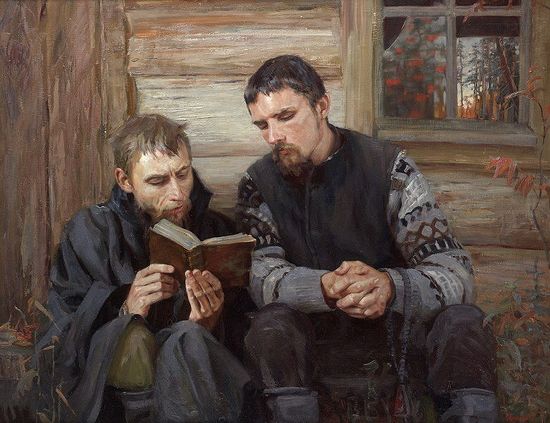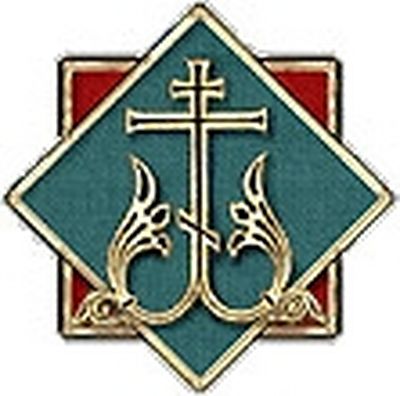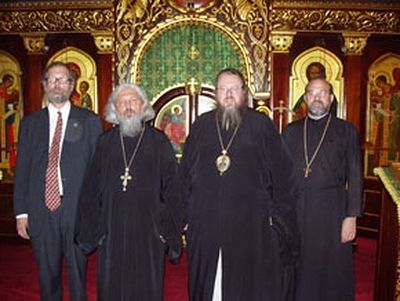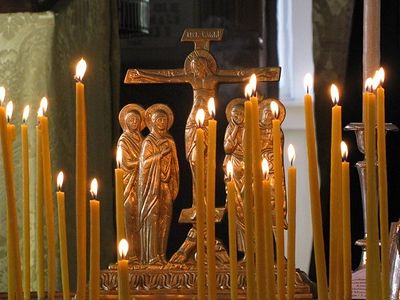Before joining the Orthodox Church, I spent around six years as a Calvinist, and more specifically as a Presbyterian.
Much of that time was in the Reformed Presbyterian Church of North America (RPCNA), a denomination identifying historically with the Scottish Covenanters. This small denomination is one among the various Presbyterian denominations in the world today holding a rather strict adherence to what they call the regulative principle of worship.
Alongside the absence of instrumental accompaniment in worship—as well as the exclusive use of the biblical Psalms for hymns—was a firm belief in the perpetual nature of the Sabbath. However, in their minds (unlike Seventh-day Adventists, for example), the Sabbath rest of the seventh day had now been transferred to the Lord’s Day or Sunday.
And yet, despite the Sabbath being transferred symbolically from Saturday to Sunday, the prescriptions (or rather, restrictions) related to this day in the old covenant had been seamlessly carried over into the new.
The RPCNA Constitution includes the Westminster Confession of Faith (ca. 1646), which states (ch. 21):
7. As it is the law of nature, that, in general, a due proportion of time be set apart for the worship of God; so, in His Word, by a positive, moral, and perpetual commandment, binding all men, in all ages, He hath particularly appointed one day in seven, for a Sabbath, to be kept holy unto Him: which, from the beginning of the world to the resurrection of Christ, was the last day of the week; and, from the resurrection of Christ, was changed into the first day of the week, which, in Scripture, is called the Lord’s Day, and is to be continued to the end of the world, as the Christian Sabbath.
8. This Sabbath is then kept holy unto the Lord, when men, after a due preparing of their hearts, and ordering of their common affairs beforehand, do not only observe an holy rest, all the day, from their own works, words, and thoughts about their worldly employments, and recreations, but also are taken up the whole time in the public and private exercises of His worship, and in the duties of necessity and mercy.
Much in the same way as in traditional Judaism, Reformed Presbyterians ensure that all food preparations are made the night before Sunday, they refuse to work or make unnecessary purchases on that day, and many refuse to do anything of a “secular” nature at all on Sundays (such as watch television, play games, listen to non-Christian music, and so on).
Not surprisingly, all of the biblical “proof texts” cited by the confession on this issue are taken from the Old Testament (Ex. 20:8; Ex. 16:23, 25–26, 29–30; Ex. 31:15–17; Isa. 58:13; Neh. 13:15–19, 21–22; Isa. 58:13), save for one: Matthew 12:1–13. This is admittedly a little confusing, given that this story from the Gospel would seem to undermine a rigid application of Sabbath law, if not especially for Christians.
For example, Jesus reminds the Pharisees (vv. 3–4, 12):
Have you not read what David did, when he was hungry, and those who were with him: how he entered the house of God and ate the bread of the Presence, which it was not lawful for him to eat nor for those who were with him, but only for the priests? … So it is lawful to do good on the sabbath.
In the Orthodox Christian tradition, there is no better reminder of “do[ing] good on the sabbath” than in both the work of Christ on Holy Saturday, and in our liturgical recognition of Saturday as the “Day of Souls.”
If the original Sabbath of God was a day to rest from the work of creation (Gen. 2:2–3), then “The Great Sabbath” of Holy Saturday (the Saturday just prior to Pascha/Easter) is the day on which our God rests from the work of re-creation. It is a day of rest because Christ himself “rests” in the tomb, following his crucifixion, but it is also a day of rest on which Christ does a good work—descending into Hades and raising into Paradise the faithful saints of old. As our Kontakion (a hymn) of the day exclaims: “This is the most blessed Sabbath on which Christ has fallen asleep to rise again on the third day!”
As the Day of Souls, the Christian Sabbath (which is still on Saturday) is now a day set apart for prayers and alms in honor of our departed loved ones. Those who have “fallen asleep” in the Lord are now remembered on the day of rest; on the day we petition God to grant repose and peace to their souls. The proper days for this commemoration are the Saturday before Meat-fare Sunday (prior to Great Lent) and on the Saturday before Pentecost. However, Saturday in general is set apart on our liturgical calendar as a day to commemorate the dead, even apart from these two specific days.
While the strict observations of the Sabbath have passed away for Christians in the new covenant, the day itself has remained as a time for both rest and prayer, remembering not only the work of Christ in his death and resurrection, but also our departed loved ones and the faithful who have gone before us to their rest. And following the apostolic tradition, our primary day for the Eucharistic worship is now on Sunday, which is the eighth day; the Day of the Lord.




